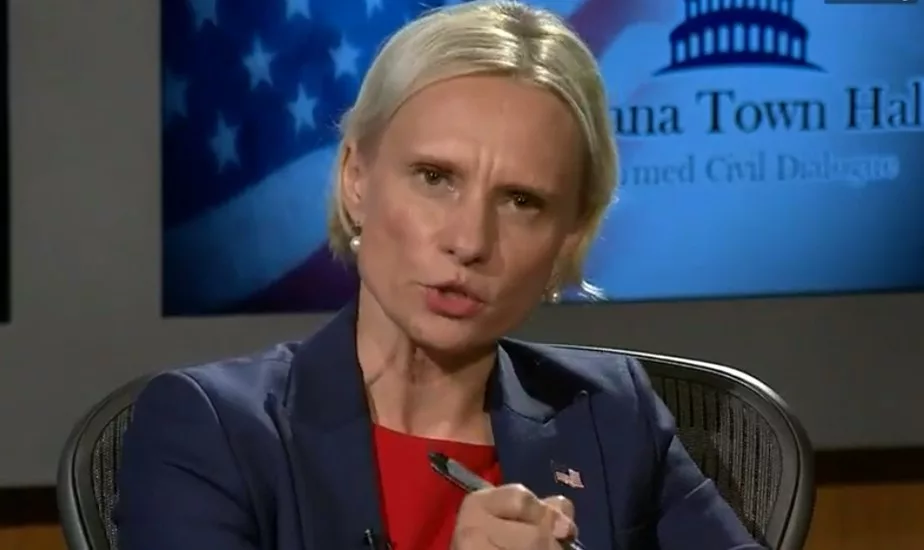Congresswoman Victoria Spartz (R-IN-05) is firing back after several checkoff groups have slammed her recent amendment to the ag appropriations bill.
Introduced by Spartz to the Agriculture, Rural Development, Food and Drug Administration, and Related Agencies Appropriations Act of 2024—the legislation that funds the U.S. Department of Agriculture (USDA)—the amendment states that none of the funds made available by the bill may be used to carry out commodity checkoff programs.
Ethan Lane, Vice President of Government Affairs with the National Cattlemen’s Beef Association (NCBA), says Spartz’s amendment simply wasn’t necessary.
“The amendment that was offered by Representative Spartz would seek to prevent any federal funds from being used to implement federal commodity checkoff programs. But the strange thing about that is that no federal funds are used to implement federal commodity checkoff programs. They are funded by contributions to those programs from producers throughout the country that pay in,” he explained. “It really speaks to the fact that Representative Spartz and her team don’t understand completely the issue that they’re attempting to impact with the amendment.”
However, in an interview with Hoosier Ag Today, Spartz says the ag checkoff programs lack oversight and transparency.
“I just sold over fifty thousand bushels of wheat and paid the fees, so I understand what it is about,” rebuffed Spartz. “But I haven’t seen what these organizations are doing. I know that they’re paying big salaries to their boards. So, I think that we need to look and make sure that these organizations are serving the purpose to promote agriculture, not to promote [a] few oligarchs and large monopolies.”
Spartz also pointed out that it wouldn’t affect any federal money for checkoff programs since there is no federal money. However, she says the mandatory checkoff payments equate to a farming tax and therefore Congress should have some oversight.
“There is a problem with checkoff. They’re not transparent. They are not telling what’s happening with the board, who’s serving on the board, what they’re doing, how they spend money,” she said. “This is a fee [that] farmers are forced to pay. It’s not a voluntary fee. Congress forces every farmer to pay this tax, so Congress needs to know what they’re doing. And farmers need to know.”
However, NCBA’s Lane disagrees about a lack of transparency.
“Rep. Spartz’s assertions are completely inaccurate. The Beef Checkoff is subject to robust oversight from USDA and cattle producers themselves,” he said. “If anyone wants to know how Checkoff dollars are spent, go to beefboard.org and see for yourself.”
Meanwhile, despite the fact that it wouldn’t actually affect the checkoff funds, Lane says the amendment could add to other efforts.
“I think it’s important in this environment where you have these radical animal rights groups and others trying to gut the checkoff system. We have the OFF Act that’s out there, being pushed by the HSUS Humane Society of the US, ASPCA, and Senator Cory Booker, from New Jersey and Mike Lee, Nancy Mace,” he said. “We don’t want to have any sort of wrinkle in that wall of opposition to these outside forces trying to prevent the producers from promoting their own products and conducting research in the space that they operate in.”
The Opportunities for Fairness in Farming (OFF) Act would make several changes to checkoff programs including adding audits of the programs by the Department of Agriculture. Spartz said she supports the act and the additional oversight it includes.
The amendment was met with opposition from industry groups including American Soybean Association (ASA), National Pork Producers Council (NPPC), National Milk Producers Federation (NMPF), NCBA, and Indiana Beef Cattle Association (IBCA), which together issued a news statement calling the amendment “legally frivolous” since federal money is not used for checkoff groups.
Spartz counters that it is a first step in creating congressional oversite of the organizations.
Click below to listen to Sabrina Halvorson’s radio news report for Hoosier Ag Today.
Your browser doesn’t support HTML5 audio

